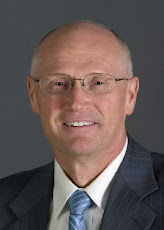“School administrators in metro Detroit districts are considering whether to retire and then return to their jobs as independent contractors . . . . Retiring allows them to begin drawing a state pension, while being rehired privately for the same job allows them to continue to collect a salary . . . .
Drawing both a pension and a paycheck was once considered "double dipping," but is allowed under Michigan's new pension reform law . . . . School districts save money when they re-hire the retiree privately, because the district typically does not offer benefits and is no longer required to contribute to the state retirement system on behalf of that employee . . . . “ Michigan Education Digest, June 8, 2010
This process has been called “retire-rehire” and has been a tactic some school districts have used to save money, by, in effect, dumping the benefit costs onto the retirement system. When an administrator retires and then is rehired on a contract, the district avoids not only the about $16,000 per year health insurance cost and the 2010-11 MPSERS rate of 19.41% (minus the 3% the employees will need to pay under the new law), but the district also avoids the 7.65% combined Social Security tax, the unemployment tax and workers compensation insurance costs.
This all adds up, with most superintendents and many other administrators earning over $100,000 per year. For example, as cited in the Michigan Education Digest report, the “retiring” Clawson Public Schools Superintendent will continue to receive her $140,000 annual salary, but the district will no longer pay $65,000 in benefits.
Many will ask, “Well, if the school districts are saving so much money, what’s wrong with that? It sounds like good management to me.”
The problem is that the benefit costs are not avoided, but merely shifted. That is, the stressed MPSERS system now absorbs the cost, and this cost is then paid by higher contribution rates paid on wages by all school districts for their employees. This practice has been under attack as “abuse” by the MPSERS system for years, and while not completely legal, many districts continued to do it. The “retired” employee is hired on a contract through a third-party employer, rather than directly. That, in itself, should be a red flag that something is not right with the tactic.
The tactic appears to have been less effective with hiring back teachers than with administrators. The excuse is that “good school administrators are hard to find”, but often this is just a smoke screen for protecting the good ole boy system within the current and former school administrator ranks. Many teachers are ready to step into principal roles when given a chance. And, with all of the laid off management skill in Michigan today, there is ample transferable talent available to run our schools at the superintendent level.
While the school district retirement system reform law recently enacted was a step in the right direction, it could be improved by eliminating the double dipping it still allows.
Subscribe to:
Post Comments (Atom)


The only problem I see here is many school districts apply pressure to teachers near retirement age to retire and then be re-hired. The corporate world does the same thing. How do we protect those that are just a few years away from retirement from becoming these victims?
ReplyDeleteI believe there are laws which protect employees from discrimination based on age. The EEOC helps enforce these laws.
ReplyDeleteBut, I must say that neither I, as a school business manager, nor my wife, as 6 years as Superintendent and 5 years as Director of Personnel, have seen teachers pressured. Heck, they are often paid $25,000 - 30,000 as retirement incentives! Instead of being pressured, they are bribed to retire. These have come so regular that teachers now hold out for the next "one time offer" to come around, so the incentives have little effect on saving money, but become simply another benefit.